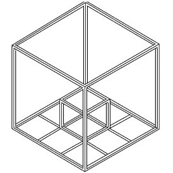ChatoyancyFrom Wikipedia, the free encyclopedia
In gemology,
chatoyancy (pronounced /ʃəˈtɔɪənsiː/, shə-TOY-ən-see), or chatoyance, is an optical reflectance effect seen in certain gemstones. Coined from the French "œil de chat," meaning "cat's eye," chatoyancy arises either from the fibrous structure of a material, as in tiger eye quartz, or from fibrous inclusions or cavities within the stone, as in cat's eye chrysoberyl. The effect can be likened to the sheen off a spool of silk: The luminous streak of reflected light is always perpendicular to the direction of the fibres. For a gemstone to show this effect best it must be cut en cabochon, with the fibers or fibrous structures parallel to the base of the finished stone. Faceted stones are less likely to show the effect well.
Gem species known for this phenomenon include the aforementioned quartz, chrysoberyl, beryl (especially var. aquamarine), tourmaline, apatite, moonstone and scapolite. Glass optical cable can also display chatoyancy if properly cut, and has become a popular decorative material in a variety of vivid colors.

Comments
Post new comment